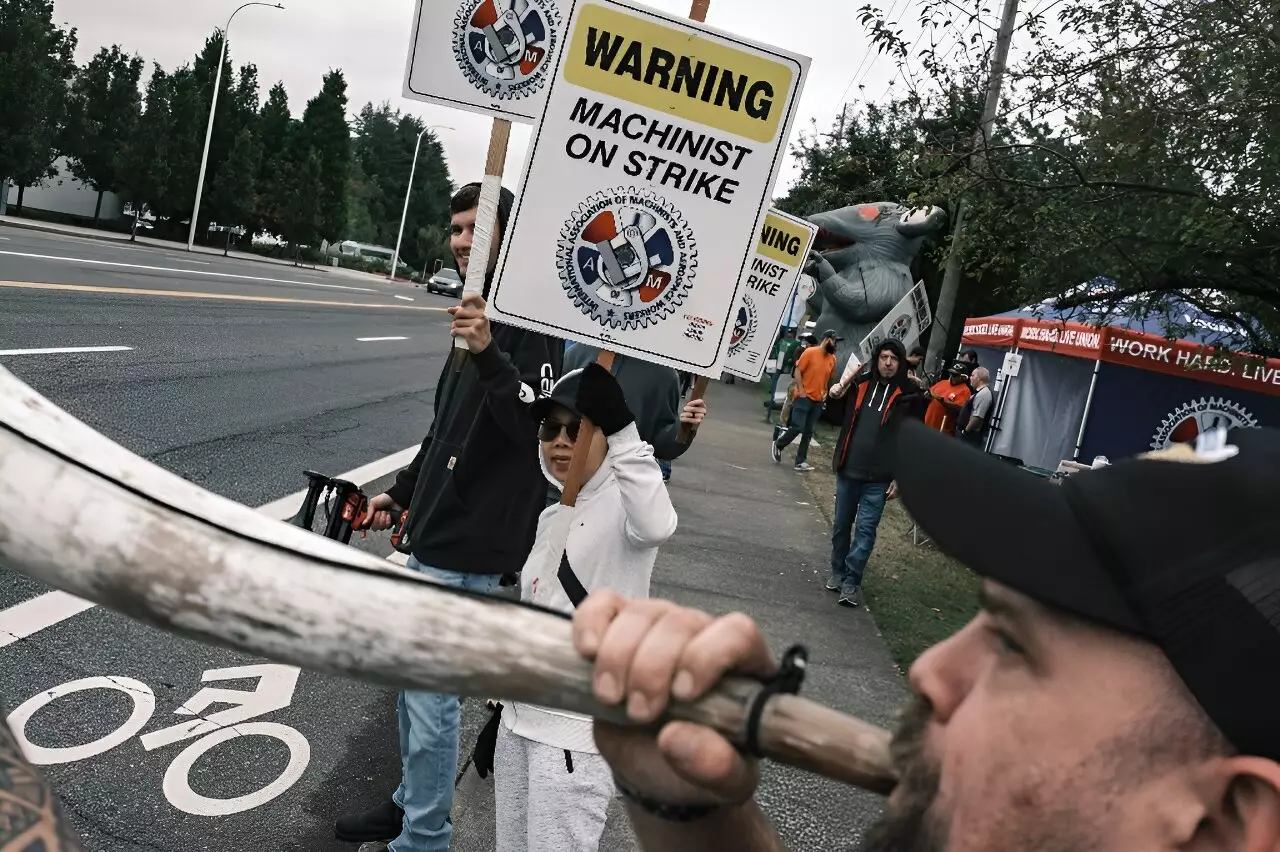Recent developments concerning the Boeing workers’ strike illustrate a widening rift between labor and management, as ongoing negotiations have broken down without a resolution. Approximately 33,000 employees represented by the International Association of Machinists and Aerospace Workers (IAM) initiated a walkout on September 13 after rejecting a contract offer. This decisive action effectively halted operations at several key assembly facilities for Boeing’s critical 737 MAX and 777 aircraft lines.
On the union’s official platform, they expressed their frustration over the lack of productive dialogue, stating, “Talks broke off, and we have no further dates scheduled at this time.” Such a sentiment reveals deep-rooted issues that go beyond mere wage concerns, hinting at underlying dissatisfaction with the company’s approach towards its workforce. Boeing, for its part, claims to be willing to resume discussions and insists on its commitment to fostering a healthier relationship with its employees.
In a critical move, Boeing presented what they termed their “best and final offer”, which proposed a 30% wage increase for the striking workers, alongside the reinstatement of an annual bonus. This proposal aimed to win over discontented employees and potentially avert prolonged disruptions to production. However, the IAM has articulated that this offer falls short of addressing more pressing issues that are significantly affecting the workforce’s morale.
The union’s message indicates that while wage increases are important, there are other crucial elements—such as pensions, paid time off, and the speed of wage progression—that remain unresolved. The IAM pointedly criticized Boeing for its refusal to re-establish the defined benefit pension plan that had previously been in place, emphasizing that the financial security of workers cannot be overlooked in favor of temporary wage increases.
The ramifications of these stalled negotiations extend well beyond Boeing’s assembly lines and into the broader economic landscape. The shutdown of these facilities does not merely interrupt production schedules; it also places significant strain on the supply chain and related sectors. Such labor disputes can have ripple effects, influencing everything from component suppliers to airline customers reliant on timely deliveries.
Moreover, the IAM has sought to highlight the need for a more substantial reconsideration of benefits and work conditions, echoing a growing trend in labor movements across various industries. As more workers advocate for their rights and push for more equitable treatment, the Boeing strike serves as a critical reminder of the importance of fair negotiation practices in the aerospace sector.
The disconnect between Boeing management and its workforce reflects not only a battle over wages but also an essential dialogue regarding workers’ rights and benefits. While Boeing expresses a readiness to negotiate, the IAM’s emphatic stance of needing more than mere wage adjustments signifies a call for comprehensive reform within the company’s employment practices. As both parties stand firm, the outcome of this standoff remains uncertain, but it will undeniably shape the future of labor relations within Boeing and potentially influence the broader dynamics of the American labor market.


Leave a Reply